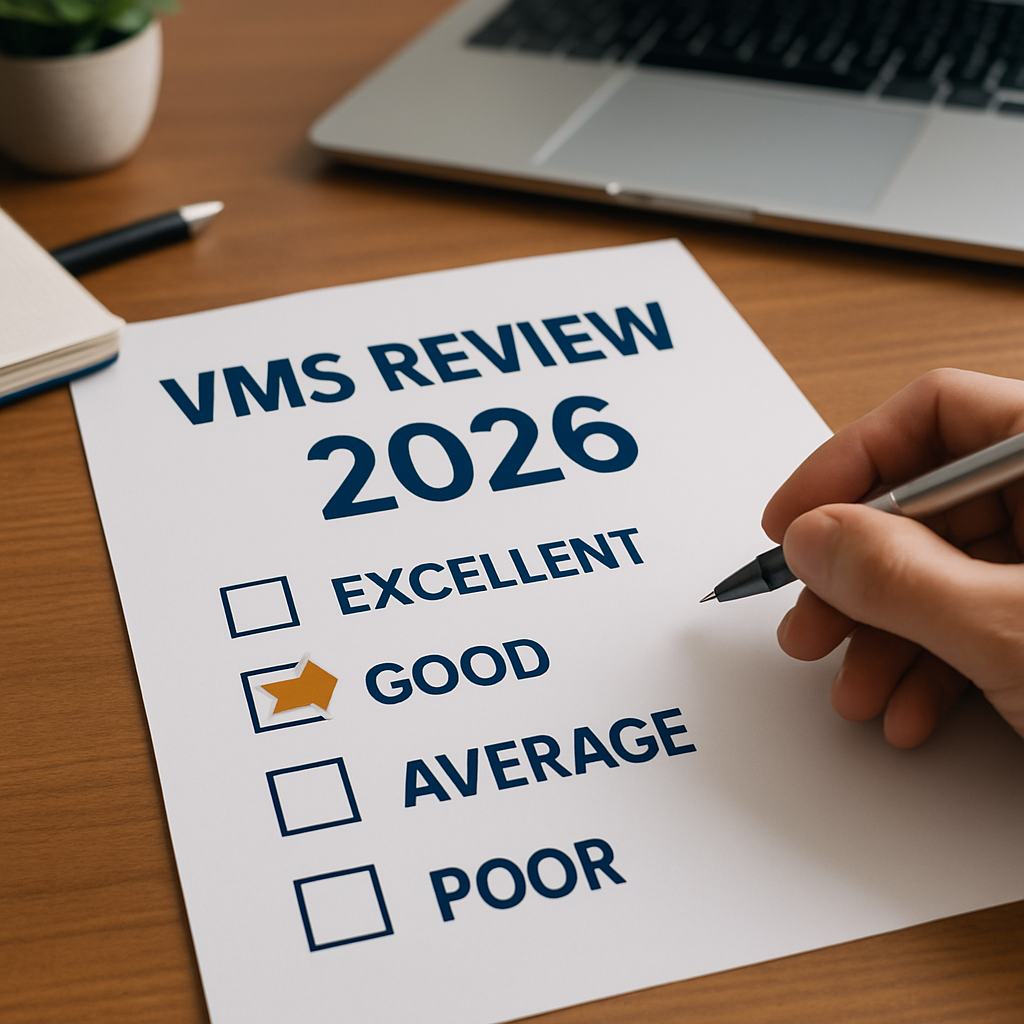Implementing a Vendor Management System (VMS) can be a game-changer for organizations managing a contingent workforce. However, the implementation process can sometimes be lengthy and complex. Streamlining this process can ensure a quicker, smoother deployment, enabling your business to reap the benefits sooner. Below are five strategies to make VMS implementations more efficient and faster.
Implementing a Vendor Management System (VMS) can transform how organizations manage their contingent workforce. Streamlining the process ensures quicker deployment and benefits. Here are five strategies for efficient and faster VMS implementations.
1 - Develop a Clear Implementation Roadmap
Before diving into the implementation, it's crucial to develop a detailed roadmap. This plan should outline every step, from system configuration to user training and go-live. Start by identifying key milestones, setting realistic deadlines, and ensuring all stakeholders are on the same page. A well-defined plan prevents unnecessary delays and keeps the implementation team focused on deliverables.
Key Steps:
- Define objectives for the VMS.
- Document and agree on business requirements and process flows.
- Align the project timeline with key business operations.
- Assign clear roles and responsibilities to stakeholders.
By creating a clear roadmap, you set expectations upfront and minimize the risk of scope creep, ensuring a faster implementation.
2 - Leverage Systems with an Open API
Integrations can be a time-consuming part of any VMS implementation. Choosing a VMS with an Open API for easier and faster integration with your most critical systems - such as HRIS, payroll, and time-tracking platforms - can save valuable time and deliver a lot less pain. Open API’s are more reflective of a 2024 tech product which your internal tech stack likely has.
Open API’s streamline the deployment, allowing your VMS to work seamlessly with your existing software and reducing the time to go live.
3 - Do Not Over-Customize
Customization might seem appealing at first but can significantly slow down the implementation process. Instead, opt for a VMS that offers high configurability or at the very least has a modern tech stack if you do need some custom development done. Configurable solutions allow you to adapt the system to your needs without requiring extensive coding or development work.
Focus on critical requirements in phase one and control the population that patriciate in the process. Engaging key users is important but allowing too many cross-functional resources to add in their nice to have requirements can significantly drag out implementations. Everyone wants their role to benefit from the VMS, but they also look at it from a selfish perspective. Ensure balance with overall business benefit versus building a perfect system for everyone.
4 - Invest in User Training Early
User Adoption is a critical factor in the success of a VMS implementation. Investing in comprehensive training early in the process ensures that your team is comfortable with the system by the time it goes live. Prioritize training sessions that focus on the specific needs of your users, from recruiters, hiring managers to finance and other stakeholders.
Best-practice includes:
- Offering role-based training that tailors sessions to different user needs.
- Utilizing a dynamic training model that includes live and recorded training as well as text and video guides for on-demand training.
- Providing continuous learning resources to support user’s post-implementation.
When users are well-trained from the beginning, they’re more likely to use the system efficiently, speeding up adoption and reducing post-launch issues.
5 - Utilize Agile Implementation Methodologies
Traditional waterfall approaches to VMS implementations can be rigid and slow. Instead, consider adopting an agile methodology, where the implementation process is broken down into smaller, manageable phases. This approach allows for iterative improvements, quicker adjustments, and faster results.
Agile Implementation Benefits Include:
- Quicker delivery of key features in phases.
- Flexibility to adapt to feedback and unforeseen challenges.
- Increased collaboration between the VMS provider and your internal teams.
Agile methodologies enable faster time-to-value by focusing on incremental progress, reducing the overall implementation time, and ensuring continuous improvement.
Conclusion
Efficiency and speed in VMS implementations are essential for businesses looking to optimize their contingent workforce management. By developing a clear roadmap, leveraging pre-built integrations, opting for configurable solutions, investing in early user training, and utilizing agile methodologies, you can ensure a quicker and smoother deployment of your VMS. These strategies not only save time but also contribute to the long-term success of your VMS solution.
Would you like to learn more about Vendor Management Systems?
For those seeking a fresh VMS Solution, download our complimentary VMS Buyers Guide. It has everything you need to know about vendor management systems and equips you with essential insights on what to look for when choosing the perfect VMS for your needs; complete with specific questions to ask potential VMS providers.
About Conexis VMS
Conexis VMS is a robust, cloud-based, mobile-friendly software application that empowers your company to streamline and oversee your entire contingent workforce, regardless of the diverse skill sets you require. Our award-winning Vendor Management System is the the most modern and advanced VMS tech stack available today that has been built with the user in mind. It starts with the latest codebase and extends to our lightning-fast AWS microservice infrastructure. Add to that our Open API and Software Development Kit (SDK), making Conexis the lights-out leader in VMS technology. Because of our technology, Conexis VMS implementations is fast and easy. Plus, we can have your organization up and running in as little as a few weeks!
Learn more about our Company and why organizations are choosing Conexis VMS
Contact Us
Whether you are looking for a new VMS Solution, or just getting started, we are here to help. See how easy Conexis is to use by taking a quick 2 minute Self-Guided Tour. Contact Us for a Free No-Obligation Consultation to discuss your workforce challenges (and get immediate actionable insights) or Book a Personal Demo Today!
Additional Articles on this Topic





